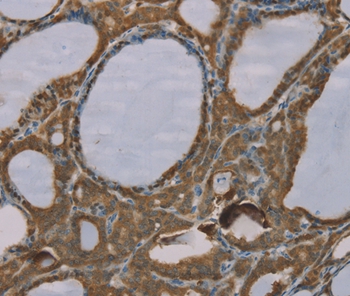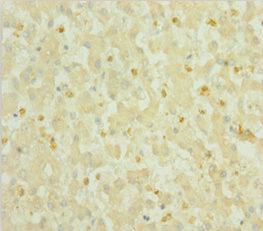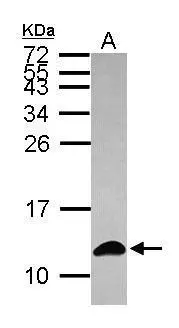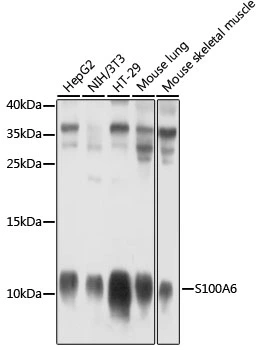S100A6 antibody [CACY-100]
GTX11181
ApplicationsImmunoPrecipitation, Western Blot, ImmunoHistoChemistry, ImmunoHistoChemistry Frozen, ImmunoHistoChemistry Paraffin
Product group Antibodies
ReactivityBovine, Canine, Goat, Human, Porcine, Reptile, Rat
TargetS100A6
Overview
- SupplierGeneTex
- Product NameS100A6 antibody [CACY-100]
- Delivery Days Customer9
- Application Supplier NoteIHC-Fr: 1:4,000. *Optimal dilutions/concentrations should be determined by the researcher.Not tested in other applications.
- ApplicationsImmunoPrecipitation, Western Blot, ImmunoHistoChemistry, ImmunoHistoChemistry Frozen, ImmunoHistoChemistry Paraffin
- CertificationResearch Use Only
- ClonalityMonoclonal
- Clone IDCACY-100
- ConjugateUnconjugated
- Gene ID6277
- Target nameS100A6
- Target descriptionS100 calcium binding protein A6
- Target synonyms2A9, 5B10, CABP, CACY, PRA, S10A6, protein S100-A6, MLN 4, calcyclin, growth factor-inducible protein 2A9, prolactin receptor-associated protein
- HostMouse
- IsotypeIgG1
- Protein IDP06703
- Protein NameProtein S100-A6
- Scientific DescriptionThis protein is a member of the S100 family of proteins containing 2 EF-hand calcium-binding motifs. S100 proteins are localized in the cytoplasm and/or nucleus of a wide range of cells, and involved in the regulation of a number of cellular processes such as cell cycle progression and differentiation. S100 genes include at least 13 members which are located as a cluster on chromosome 1q21. This protein may function in stimulation of Ca2+-dependent insulin release, stimulation of prolactin secretion, and exocytosis. Chromosomal rearrangements and altered expression of this gene have been implicated in melanoma.
- ReactivityBovine, Canine, Goat, Human, Porcine, Reptile, Rat
- Storage Instruction-20°C or -80°C,2°C to 8°C
- UNSPSC41116161
References
- Proteome analysis of distinct developmental stages of human natural killer (NK) cells. Scheiter M et al., 2013 May, Mol Cell ProteomicsRead this paper







